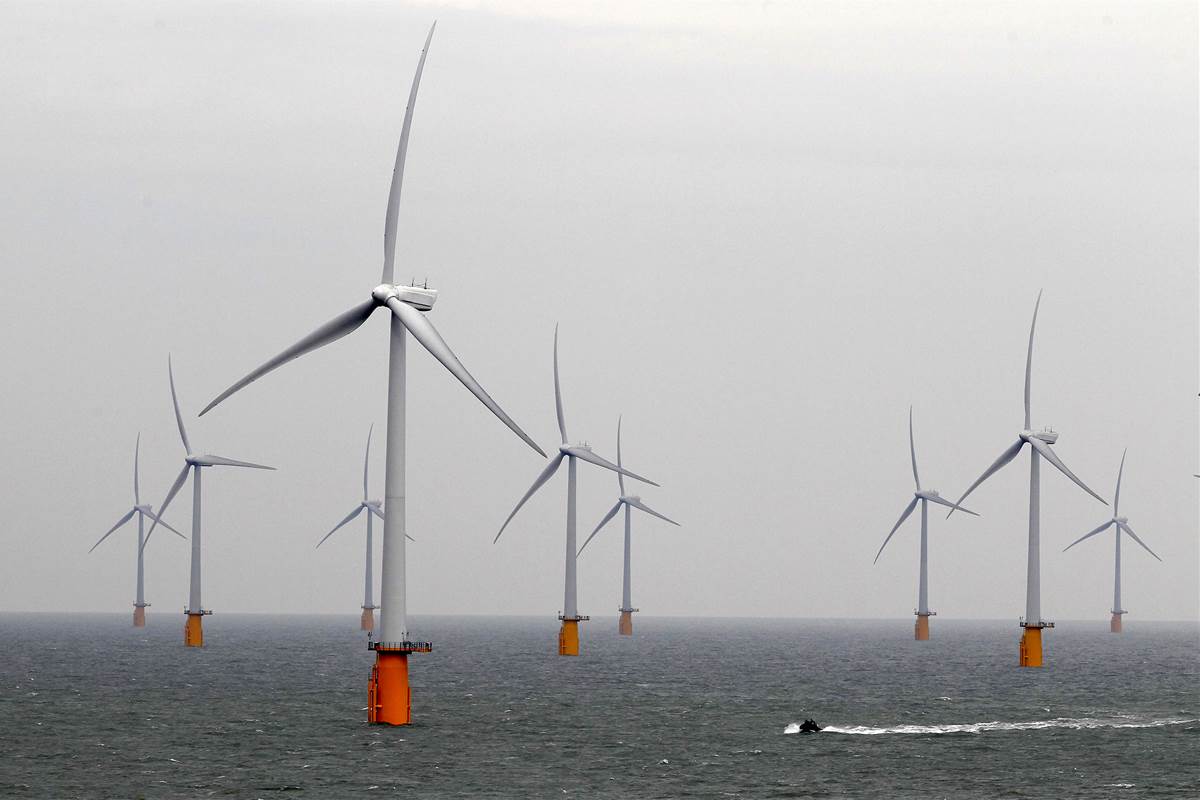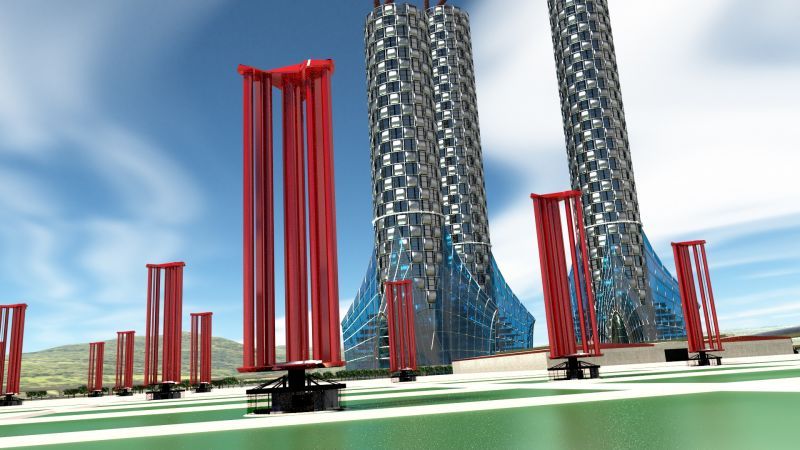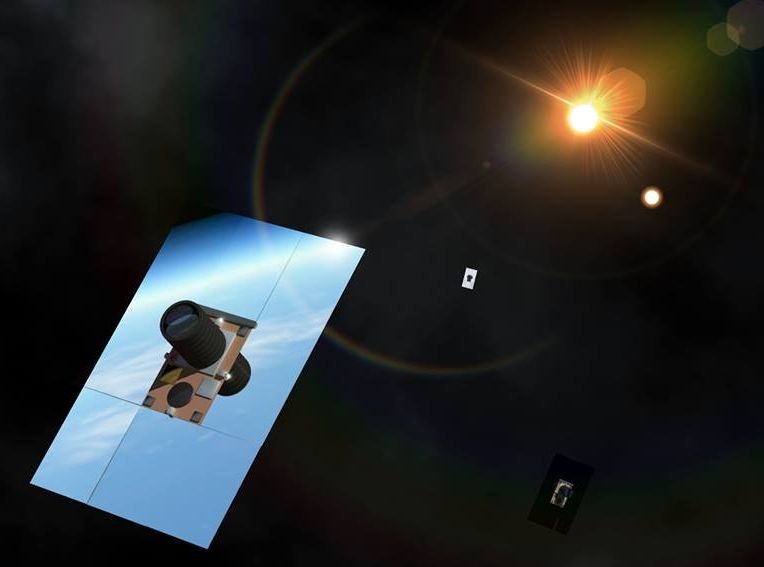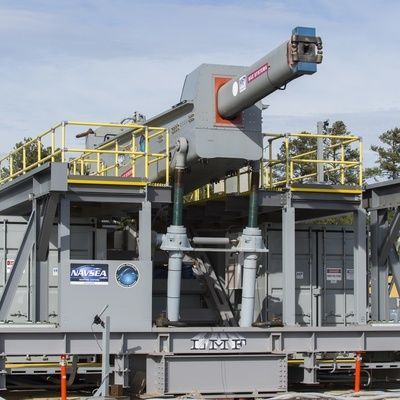A research group based at Stanford University has drawn a plan for nations to reduce global warming by relying on solar and wind power.


The new plasma has been developed by researchers from MIT. Unlike most plasmas, which are made up of two ion species, the new plasma is made up of three ion species.
Scroll down for the [VIDEO] Some information and frequently asked questions about Advanced Denial System are :
Q1. Why do we need this technology? A1.The Active Denial System is needed because it’s the first non-lethal, directed-energy, counter-personnel system with an extended range greater than currently fielded non-lethal weapons. Most counter-personnel non-lethal weapons use kinetic energy (rubber rounds, bean bags, etc.). A kinetic-based system has a higher risk of human injury, and its effectiveness varies in relation to the size, age and gender of the target. The Active Denial System, however, is consistently effective regardless of size, age and gender and has a range greater than small-arms range. The Active Denial System will provide military personnel with a non-lethal weapon that has the same effect on all human targets.
Q2. What type of Department of Defense missions will the Active Denial System support? A2. The Active Denial System will support a full spectrum of operations ranging from non-lethal methods of crowd control, crowd dispersal, convoy and patrol protection, checkpoint security, perimeter security, area denial, and port protection, as well as other defensive and offensive operations from both fixed-site or mobile platforms. The Active Denial System is an advanced, long-range non-lethal, directed energy, counter-personnel capability that projects a man-sized (1.5 m) beam of millimeter waves (not microwaves) at a range up to 1,000 meters. It will have the same compelling non-lethal effect on all human targets, regardless of size, age and gender.

Figured this deserved its own post:
The other day i had this idea for wind farms on the far Northern end of Canada, where it is basically a treeless desert, and have those running along the whole coast up there. I remember Japan was working on some wind power system where if it got hit by a typhoon it would supposedly produce 50 years worth of power. The main issues would be the cost of the wind systems, i don’t even know if they are commercially available yet, secondly hooking them up to the power grid and trying to run it into the greater North American power grid, i don’t know if the power grid stretches from up there down to the main grid. The plus to this as opposed to solar is this could be running up there 24÷7÷365. Cost to do something like this, to start, probably in the neighborhood of 5 to 10 million dollars US, and would require a ton of connections.
Typhoons are generally associated with mass destruction, but a Japanese engineer has developed a wind turbine that can harness the tremendous power of these storms and turn it into useful energy. If he’s right, a single typhoon could power Japan for 50 years.
A new experiment at the Large Hadron Collider has confirmed one of the oldest predictions in quantum physics.
Physicists from the ATLAS experiment at CERN have revealed they’ve observed direct evidence of a process known as light-by-light scattering, in which light interacts with itself at high energy.
This phenomenon is critical to current understanding of quantum electrodynamics, and scientists have sought this ‘milestone result’ for decades – but now, for the first time, researchers say have evidence of photons that interact and change directions.

“This paper discusses the physics, engineering and mission architecture relating to a gram-sized interstellar probe propelled by a laser beam. The objectives are to design a fly-by mission to Alpha Centauri with a total mission duration of 50 years travelling at a cruise speed of 0.1c. Furthermore, optical data from the target star system is to be obtained and sent back to the Solar system. The main challenges of such a mission are presented and possible solutions proposed. The results show that by extrapolating from currently existing technology, such a mission would be feasible. The total mass of the proposed spacecraft is 23g and the space-based laser infrastructure has a beam power output of 15GW. Rurther exploration of the laser — spacecraft tradespace and associated technologies are necessary.”

By David Hambling
The accidental discovery of a novel aluminium alloy that reacts with water in a highly unusual way may be the first step to reviving the struggling hydrogen economy. It could offer a convenient and portable source of hydrogen for fuel cells and other applications, potentially transforming the energy market and providing an alternative to batteries and liquid fuels.
“The important aspect of the approach is that it lets you make very compact systems,” says Anthony Kucernak, who studies fuel cells at Imperial College London and wasn’t involved with the research. “That would be very useful for systems which need to be very light or operate for long periods on hydrogen, where the use of hydrogen stored in a cylinder is prohibitive.”

New capacitors offer big power storage and transmission in a mini-package, with benefits beyond electro-cannons.
The U.S. Navy’s shipboard railgun is moving from the lab to the testing range, a big step for a weapon designed to fire massive bullets at hypersonic speeds. But a separate breakthrough in electrical pulse generation — capacitors that provide a bigger jolt in a smaller package — that may reshape the future of naval power.
The railgun’s electromagnets are designed to accelerate a Hyper Velocity Projectile from zero to some 8,600 kmph, about Mach 7. That velocity requires a lot of power. In early testing, the Office of Naval Research had relied on banks of commercial capacitors to pulse electricity to the gun. But they were “not suitable for integration aboard a ship” — too large to fit aboard Zumwalt-class destroyers, as Thomas Beutner, head of ONR’s Naval Air Warfare and Weapons Department, explained during a July event in Washington.
Your flying car might finally be on the way as the all-electric, two-seater Lilium Jet took its first test flight this week. Lilium Aviation’s prototype consumes around 90 percent less energy than drone-style aircraft and could be the transportation mode of the future.
If you’ve been begging the universe for a flying car for your entire life, you may soon be able to stop asking (sort of). This week, Germany-based company Lilium Aviation took its new all-electric, two-seater vertical take-off and landing (VTOL) prototype for its first test flight. The jet was piloted remotely during the tests, but its creators say the vehicle’s first manned flight will happen soon.
At the 2017 Naval Future Force Science and Technology Expo in Washington DC, an ONR spokesman revealed that the weapon is ready for field demonstrations at the Naval Surface Warfare Center Dahlgren Division’s new railgun Rep-Rate Test Site at Terminal Range, according to New Atlas.
Initial rep-rate fires (repetition rate of fires) of multi-shot salvos already have been successfully conducted at low muzzle energy, officials say.
The next test sequence calls for safely increasing launch energy, firing rates and salvo size.